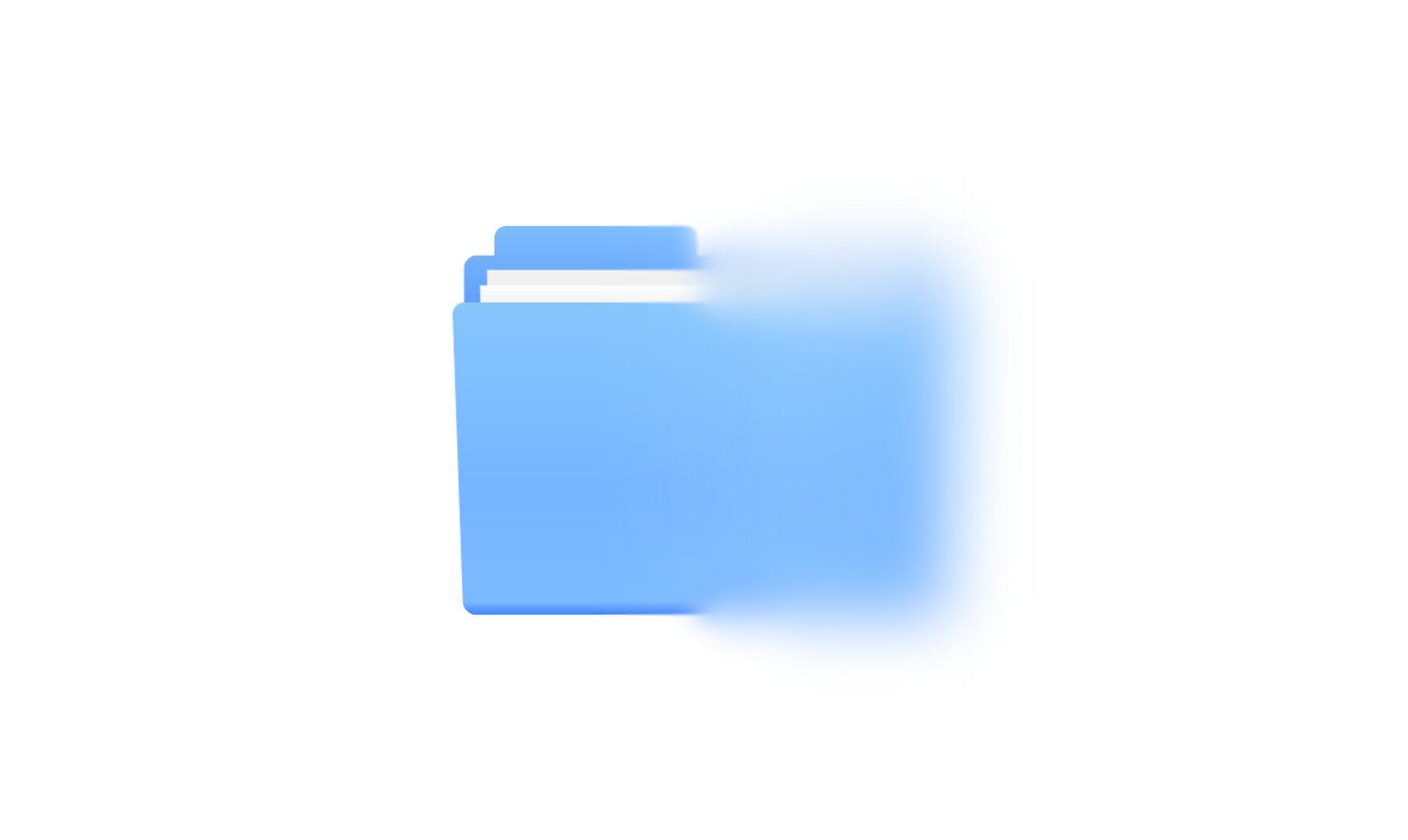You're probably reading this on a computer with dozens of folders. Maybe hundreds. Your email is basically folders all the way down.
But here's a wild thought: What if folders never existed?
I'm not just talking about those things in your drawer. I mean the entire concept of organizing information by putting it in labeled containers. That simple idea has shaped how we work, think, and structure our entire digital world.
The great reshuffle: How would we actually get work done?
Picture walking into your office tomorrow. There are no file cabinets. Your computer has no folders. Your email is just... one continuous stream of messages.
Chaos, right?
But maybe not. Our folder-obsessed brains just can't imagine the alternatives. Here's what might have emerged instead:
The web-thinkers
Instead of tucking information into neat little boxes, imagine if everything was connected in a vast web of relationships. Like your brain, but for your entire organization.
That report you're working on? It wouldn't sit in your "Q4 Projects" folder. Instead, it would exist in a space connected to:
Everyone involved in creating it
Related data and research
Similar past projects
Upcoming work that builds on it
Kind of like how your Twitter feed works, but for actual productive stuff.
The time lords
Or maybe we'd organize everything by when it happened. Not just a simple chronological list – imagine a rich temporal tapestry where every piece of information exists in its historical context.
Your work wouldn't be organized by project folders, but by flows of activity. Want to understand a client relationship? Just scroll through its timeline, seeing every interaction, document, and decision in perfect sequence.
Sound familiar? It's basically TikTok for business (okay, maybe that's a stretch, but you get the idea).
The space cadets
Here's a really wild one: what if we organized information like physical spaces?
Instead of clicking through folders, you'd navigate virtual landscapes of information. Your company's knowledge would be a city, with districts for different departments, buildings for projects, and rooms for specific topics.
Think less Windows Explorer, more Minecraft.
"But that would never work!" (Or would It?)
I can hear the objections already. "That sounds incredibly inefficient!" "How would you find anything?" "This is just chaos with extra steps!"
But remember: these reactions come from brains that have been trained since childhood to think in folders. We're like fish trying to imagine life without water.
Consider this: many of the things we take for granted about modern work are actually just artifacts of folder-based thinking:
Hierarchical org charts (folders for people)
Project-based work organization (folders for tasks)
Departmental divisions (folders for functions)
The plot twist: We're already living in the post-folder world
Here's where it gets interesting: many of the alternative approaches I've described are already emerging:
Graph databases are replacing traditional file systems
Social media has trained us to think in networks, not hierarchies
AI doesn't care about your folders – it understands context and relationships
Modern collaboration tools look more like streams than filing cabinets
The folder paradigm is showing its age. It's a metaphor from the paper age that we dragged into the digital world, like a fish trying to swim on land.
What this means for you
You might be thinking: "Cool thought experiment, but so what?"
Here's the thing: understanding how we might have organized information without folders helps us imagine new possibilities for how we might organize it in the future.
Maybe it's time to:
Stop forcing everything into nested folders
Start thinking about relationships and context
Embrace more fluid, natural ways of organizing information
Let AI help us find things instead of maintaining rigid structures
The future is not folders
The next generation of knowledge workers might look back at our folder obsession the same way we look at paper ledgers and card catalogs – quaint relics of a more rigid time.
The future of work probably isn't folders, and it's probably not any single alternative system either. It's likely to be a hybrid approach that matches how our brains actually work – fluid, contextual, and constantly evolving.
So next time you're about to create another folder, pause for a moment. Ask yourself: is this really the best way to organize this information? Or am I just following a 100-year-old habit that's outlived its usefulness?
Welcome to the post-folder world. It's messy, it's complex, but it might just be better.
Join our beta testing of Poi – Personal Idea Assistant that explore post-folder world.




Thank you for this post!
I disagree that folders shape our organisations; their impact is overstated here.
Folders were developed to model trees and other hierarchical structures. These were likely all all informed by hierarchical societies that humans have lived in, where king or chief has a family and thus a tree of succession.
The first modern corporations - the East India Trading companies - were modeled after the hierarchical structure of kingdoms and coupled to governments.
With the structure of the 'app', understanding of data is already starting to separate from folders; students are using free text search, long names, batched files - paradigms introduced by email, Google Drive, the Photos app, and other common utilities - to think about organisation instead: https://www.theverge.com/22684730/students-file-folder-directory-structure-education-gen-z. This exploration of separating our understanding of the computer from an understanding of a folder is already happening in the classroom in real time!